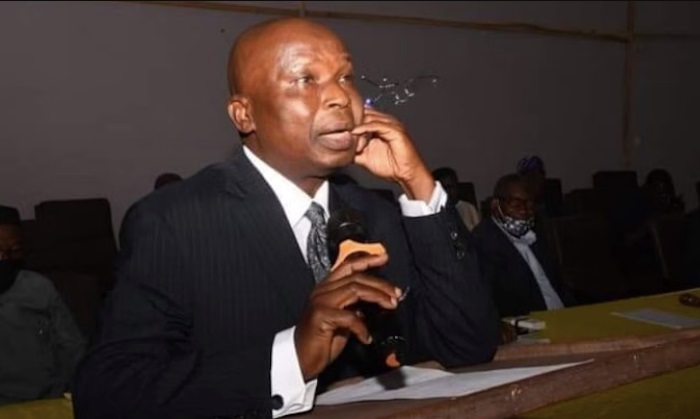By Juliana Taiwo-Obalonye, Abuja
The Attorney-General of the Federation, Lateef Fagbemi, has disclosed that his office has received a significant influx of applications for presidential pardons and clemency.
He made the disclosure on Wednesday during the inauguration of the Presidential Advisory Committee on Prerogative of Mercy (PACPM) by the Secretary to the Government of the Federation, George Akume, in Abuja.
The PACPM is tasked with reviewing applications for clemency and recommending deserving individuals for presidential pardon, aiming to alleviate prison overcrowding. The committee will serve a four-year term and includes representatives from various ministries and religious organisations.
The committee is chaired by the AGF. Other members include: the Permanent Secretary, Special Duties and Governmental Affairs, representatives of the Nigeria Police Force, Nigerian Correctional Service, National Human Rights Commission, Nigerian Supreme Council for Islamic Affairs (NSCIA), and the Christian Association of Nigeria (CAN).
Other members are Justice Augustine Utsaha, Alkasum Abba, Akinlolu Olujinmi, Nike Ijaiya, and the Director, Special Duties and Inter-Governmental Affairs, who will serve as Secretary.
He emphasised that the committee’s work is not a review of court decisions but a constitutional mandate to assist President Bola Tinubu in exercising his prerogative of mercy as outlined in Section 175 of Nigeria’s Constitution.
Fagbemi reiterated the importance of this initiative.
“Already, my office has been inundated with applications for presidential pardon and clemency. We are to look into these applications and advise on their merits as appropriate. We assure Nigerians that we will carry our assignment objectively, in the public interest and the interest of justice. We must also state that our assignment is in no way a review of the decisions of the courts but a discharge of a mandate imposed on Mr. President by the Constitution of the Federal Republic of Nigeria.”
He said: “Our core mandate is to assist the President in granting pardons and clemency to deserving convicts, which is crucial for decongesting our correctional facilities.”
According to the AGF, “By virtue of Section 175(1) of the Constitution of the Federal Republic of Nigeria, 1999 (as amended), the President may—
(a) grant any person concerned with or convicted of any offence created by an Act of the National Assembly a pardon, either free or subject to lawful conditions;
(b) grant to any person a respite, either for an indefinite or for a specified period of the execution of any punishment imposed on that person for such an offence;
(c) substitute a less severe form of any punishment imposed on that person for such an offence; or
(d) remit the whole or any part of any punishment imposed on the person for such an offence or of any penalty or forfeiture otherwise due to the State on account of such an offence.”
Fagbemi assured that, in carrying out the assignment, the Committee members will visit Correctional Facilities in various states of the Federation, cutting across the six geo-political zones of the country, beginning from where the last exercise ended. They will critically appraise and identify potential cases of convicts and ex-convicts towards recommending them for Presidential Pardon or Clemency as appropriate.
The AGF said: “At the conclusion of our assignment, the Committee will be required to present its report and actionable recommendations for onward transmission to Mr. President for consideration and further directives. I wish us success in our assignment and look forward with enthusiasm to the outcome of our collective efforts.”
He commended the SGF for seeing to the reconstitution and inauguration of the Committee.
He also thanked President Tinubu for approving the inauguration of the Presidential Advisory Committee on the Prerogative of Mercy today, which is a testament to the Renewed Hope Agenda.
During the inauguration, Akume emphasised the importance of the committee in promoting justice and rehabilitation within society.
He charged committee members to justify the confidence reposed in them and work assiduously towards achieving the purpose for which the committee was constituted.
